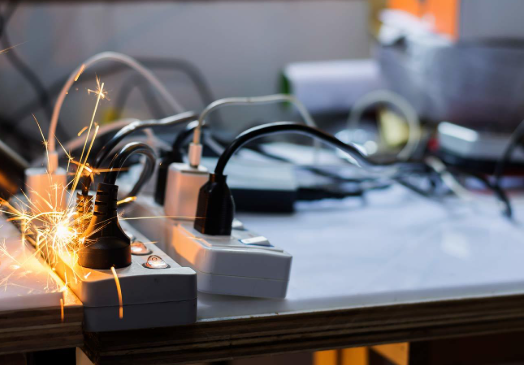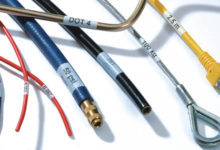What Risks Are Involved with DIY Electrical Work in Commercial Spaces?

In today’s cost-conscious business environment, it’s tempting for business owners or facility managers to consider handling certain tasks in-house to save money. While a DIY approach might work for painting or furniture assembly, electrical work is a completely different matter—especially in commercial spaces. Attempting to handle complex wiring, power distribution, or equipment installations without proper training can create serious safety and financial risks. That’s why engaging licensed commercial electricians is not just a recommendation—it’s a necessity.
Understanding the dangers of DIY electrical work in commercial settings is the first step toward making smarter, safer choices for your business.
Increased Risk of Fire Hazards
One of the most serious risks of performing electrical work without professional training is the potential for fire. Improperly installed wiring, overloaded circuits, or poor connections can generate heat, spark, or arc, leading to electrical fires. In commercial environments where higher voltages and complex systems are common, this danger is amplified.
Commercial electricians are trained to follow strict safety protocols and ensure all components are installed correctly and meet local codes. They know how to safely distribute power loads and avoid conditions that could trigger overheating or combustion. Business owners trying to save a few dollars with DIY work often unknowingly put their property, employees, and customers at great risk.
Non-Compliance with Building and Electrical Codes
Electrical codes exist to protect people and property from hazards. Commercial properties are subject to more stringent regulations than residential ones, and failing to meet these codes can result in serious legal and financial consequences. DIY electrical work often bypasses necessary permits and inspections, creating a situation where the entire system could be deemed non-compliant.
Licensed commercial electricians are well-versed in national and local codes. They ensure that all work is performed to code, passes inspection, and meets insurance requirements. Ignoring compliance may lead to fines, project shutdowns, or even denial of insurance claims in the event of damage.
Threat to Personal Safety
Electrical work is inherently dangerous. Without the proper tools, protective equipment, or training, even something as simple as installing an outlet can result in electric shock or electrocution. In commercial spaces, where three-phase systems and higher voltage equipment are common, the risks are even greater.
Commercial electricians undergo extensive training and certification to understand how to safely handle high-powered systems. They know how to de-energize circuits, test voltage, and take protective measures during installation or repair. A DIY attempt by untrained individuals could lead to serious injury—or worse.
Damage to Expensive Equipment
Commercial buildings often house expensive, sensitive equipment such as servers, industrial machinery, HVAC units, and commercial-grade lighting. Improper wiring or faulty electrical connections can result in power surges, voltage drops, or short circuits that damage or destroy this equipment.
Commercial electricians calculate electrical loads and use the correct wiring, breakers, and grounding methods to protect critical systems. A single DIY mistake—such as connecting incompatible wires or failing to use surge protection—can cause thousands of dollars in equipment damage and costly downtime for your business.
Voiding Warranties and Insurance Coverage
Many electrical components and systems come with manufacturer warranties that are only valid when installed by a licensed professional. When business owners perform unauthorized DIY electrical work, they often void these warranties. Similarly, insurance policies typically require that all electrical work be done by licensed contractors to remain valid.
If a fire, shock, or other incident occurs as a result of DIY electrical work, the insurance company may refuse to pay for damages. Hiring certified commercial electricians not only keeps your business protected but ensures that all systems remain under warranty and within insurance guidelines.
Long-Term Maintenance Issues
Even if a DIY installation appears to work at first, improper methods can lead to long-term problems. Loose connections, poor-quality materials, and insufficient grounding can cause intermittent issues, system failures, or safety concerns months or years later. These problems may not be immediately obvious but can slowly deteriorate and eventually cause significant damage.
Commercial electricians follow industry best practices to ensure durability and performance. They test their work thoroughly and ensure it is set up for long-term reliability. Cutting corners with DIY solutions often results in paying more over time for repairs, replacements, and emergency service calls.
Business Disruption and Liability
Electrical issues can lead to business disruptions, lost revenue, and potential legal liability if employees or customers are harmed. If an electrical fire causes a business closure or a shock injury occurs on the premises, the business owner may be held liable if the system was not professionally installed or maintained.
Hiring commercial electricians reduces the chance of these liabilities by ensuring that the system is installed safely, documented properly, and capable of withstanding daily commercial demands. Their work helps you maintain operational continuity and protects your business reputation.
See Also: Unleash the Full Potential of Your Photos with an Image Enhancer
Conclusion
While it may seem appealing to cut costs by attempting electrical repairs or installations yourself, the risks far outweigh the savings—especially in commercial spaces. From safety hazards and code violations to equipment damage and legal consequences, DIY electrical work can have serious implications for your business. Partnering with experienced commercial electricians ensures that your systems are safe, efficient, and compliant with all regulations. In the long run, professional electrical service is not an expense—it’s a smart investment in your company’s safety, reliability, and future success.







